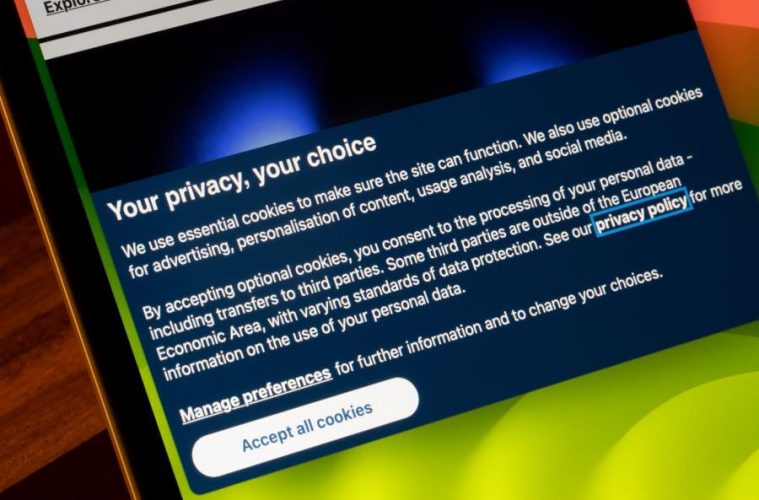Have you ever been to a website that seemingly remembers your preferences? Maybe a website remembers what you put in a shopping cart, or perhaps they recall if you prefer light or dark mode on their website. This kind of information is tracked by websites and stored on your device, which is how they remember things about you. These are known as first-party cookies and are integral to the modern web browsing experience.
But if a website can easily track your preferences and data like this, couldn’t it be used for nefarious purposes?
Enter third-party cookies; data about you and your preferences that is stored locally and accessed by services that are not related to the website that you’re visiting. While it sounds like a security risk, it’s actually a common practice and is one of the main reasons why websites now ask you about cookies and tracking data. It’s used by advertisers to track you and learn more information about your preferences so they can serve you more relevant ads. You’re essentially being followed across the web by these advertisers and they’re recording your every move.
And Google is trying to stop that.
Tech Companies Strive for a Future Without Cookies
The use of third-party cookies has led to many debates over privacy rights and online tracking practices. There are many arguments that cookies that track your data across the web are invasive, but others believe that they can be regulated and used lawfully to deliver better online experiences to users.
Large tech companies such as Google and Apple have already taken steps to move away from third-party cookies. Google plans to completely eliminate the use of third-party cookies by Q3 of 2024, and Apple has already restricted them on the Safari browser. These choices have been largely spurred on by a shift in consumer preferences. The rise of virtual private network (VPN) services and ad-blocking software has made it abundantly clear that users enjoy their privacy.
What Does This Mean for Businesses?
The implications can be difficult to understand, especially because the use of third-party cookies doesn’t directly involve businesses. But here are the main changes that a business can expect following the end of third-party cookies:
- Targeted advertising will change: Currently, advertising services use third-party cookies to deliver relevant ads to people based on their browsing behaviour. With the removal of third-party cookies, users will likely be served more generic ads, and companies will need to work with first-party data to serve targeted ads.
- A move towards privacy-centric practices: With the growing popularity of ad-blocking services and VPN usage, it’s clear that many internet users are starting to take privacy more seriously. This will likely lead to a surge in privacy-centric practices that prioritise aspects such as transparency and ethical data collection.
- Opportunities to innovate: Third-party cookies have been in use for a long time, and this has stagnated many of the strategies used in advertising and marketing. With the increased importance of first-party data, businesses will be encouraged to come up with new and innovative marketing solutions, such as contextual advertising.
The loss of tracking power makes it difficult for advertisers to follow users and learn about their preferences. This ultimately means that targeting your ideal audience may become more difficult due to a lack of personalised ads. However, this opens up an opportunity to build stronger relationships directly with your existing customers. By leveraging your business’s first-party data, you can still form comprehensive marketing campaigns and make use of analytical tools to assess their success.
In addition, working with marketing services will evolve. For example, the digital marketing agency in London that you’re working with will likely develop strategies to take advantage of your first-party data. They’ll work closely with you to optimise your website, and they’ll leverage customer relationship management (CRM) systems to gain a better understanding of your audience. This leads to collaborative marketing efforts and the exploration of new advertising channels and tactics.
Conclusion
The end of third-party cookies will make it challenging for marketers and advertisers to target specific audiences. It’ll usher in a new era of digital privacy and advertising that is largely dictated by users, leading to a massive industry shake-up that will force businesses to innovate.





